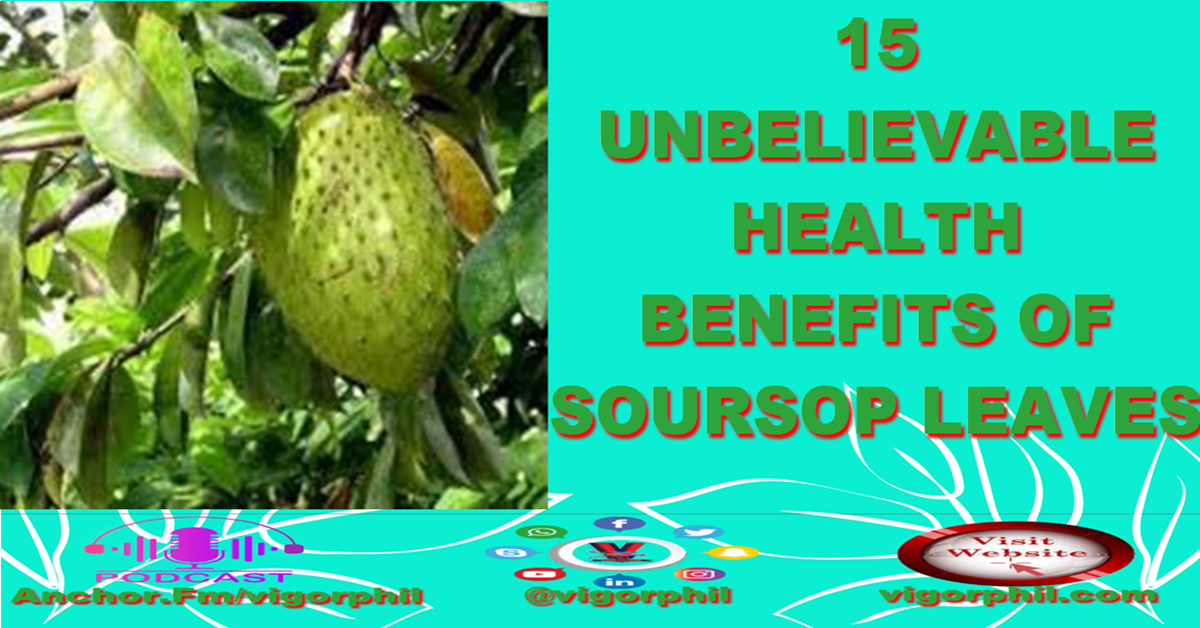When the cold season arrives, many of us find ourselves coughing, sneezing, and feeling generally unwell. While over-the-counter medications can be effective in treating cold symptoms, some people prefer to try natural remedies instead.
Natural remedies for colds refer to any plant-based or non-pharmaceutical treatments that can help alleviate the symptoms of the common cold. From herbal teas to humidifiers, there are many different types of natural remedies that people use to soothe their cold symptoms.
The importance of natural remedies for colds lies in their potential to provide relief without the side effects that can come with traditional medication. Additionally, natural remedies can often be more affordable and accessible than pharmaceutical treatments. While natural remedies may not work for everyone, they can be a useful addition to a cold-fighting routine.
In this post, we will explore some of the most effective and popular natural remedies for colds, as well as tips for avoiding the common cold altogether.
Common Cold Causes
The common cold is a viral infection that affects the upper respiratory tract. It is caused by more than 200 different viruses, the most common of which is the rhinovirus. The virus spreads through respiratory droplets that are released when an infected person coughs or sneezes, or by touching surfaces contaminated with the virus.
There are several factors that can increase your risk of catching a cold, including:
- Being in close contact with someone who has a cold
- Touching your nose, mouth, or eyes after coming into contact with a contaminated surface
- Weakened immune system due to stress, lack of sleep, or poor nutrition
- Cold weather or sudden changes in temperature
To avoid catching a cold, it is important to take precautions such as:
- Washing your hands frequently and thoroughly with soap and water
- Avoiding close contact with people who have a cold
- Avoiding touching your face, especially your nose, mouth, and eyes
- Keeping your living space clean and disinfected, especially during cold and flu season
- Staying healthy through regular exercise, a balanced diet, and stress management techniques
While it is impossible to completely eliminate the risk of catching a cold, following these tips can help reduce your chances of getting sick.
Differences between a Cold and the Flu
While the common cold and the flu share many similarities, they are caused by different viruses and have some distinct differences in symptoms. It’s important to be able to distinguish between the two, as the flu can be more serious and require medical attention.
Symptoms of the common cold typically include:
- Runny or stuffy nose
- Sneezing
- Sore throat
- Cough
- Mild body aches and headache
On the other hand, symptoms of the flu are generally more severe and can include:
- High fever
- Extreme fatigue
- Muscle and body aches
- Chills and sweats
- Dry cough
In some cases, the flu can lead to complications such as pneumonia, bronchitis, or sinus and ear infections.
It’s important to distinguish between the two because the flu can have serious health consequences, especially for people with weakened immune systems, older adults, and young children. While there is no cure for either the cold or the flu, treatments can help alleviate symptoms and prevent complications.
If you suspect you have the flu, it’s important to seek medical attention right away. Your doctor can prescribe antiviral medication that can help shorten the duration of the illness and prevent complications. Additionally, practicing good hygiene and avoiding close contact with others while sick can help prevent the spread of the virus.
Home Remedies for Sore Throat
A sore throat is a common symptom of the cold and flu. It can be caused by inflammation of the throat, often as a result of a viral or bacterial infection. Symptoms of a sore throat may include:
- Pain or discomfort in the throat, especially when swallowing
- Scratchy or itchy sensation in the throat
- Hoarseness or loss of voice
- Swollen glands in the neck or jaw
While over-the-counter medications can help alleviate sore throat symptoms, there are also several natural remedies that can provide relief. Some of these include:
- Saltwater gargle: Mix 1/4 to 1/2 teaspoon of salt in a glass of warm water and gargle several times a day.
- Honey: Add a spoonful of honey to tea or warm water and sip throughout the day.
- Ginger: Brew fresh ginger root in hot water for tea or add sliced ginger to hot water with lemon and honey.
- Chamomile tea: Chamomile tea can help reduce inflammation and soothe a sore throat.
- Marshmallow root: Marshmallow root can be brewed into tea or taken in capsule form to help soothe a sore throat.
It’s important to note that these remedies are not a substitute for medical treatment, especially if the sore throat is severe or accompanied by other symptoms. If you have a persistent or severe sore throat, it’s important to seek medical attention to rule out more serious conditions.
Foods to Avoid When You Have a Cold
While there are many foods that can help boost your immune system and fight off colds, there are also some that can worsen your symptoms. It’s important to avoid these foods when you have a cold to help speed up your recovery. Some foods to avoid include:
- Dairy products: Dairy products can thicken mucus and make it harder to clear the body.
- Fried or fatty foods: These types of foods can cause inflammation and make it harder for the body to fight off infection.
- Sugar and refined carbs: These foods can weaken the immune system and make it harder for the body to fight off infection.
- Alcohol: Alcohol can dehydrate the body and make it harder for the immune system to fight off infection.
- Caffeine: Caffeine can also dehydrate the body and interfere with sleep, which is important for a strong immune system.
Instead of these foods, focus on a healthy, cold-fighting diet that includes plenty of fruits and vegetables, whole grains, lean protein, and healthy fats. Some foods that are particularly beneficial for fighting off colds include:
- Citrus fruits: Citrus fruits like oranges, grapefruits, and lemons are high in vitamin C, which can help boost the immune system.
- Garlic: Garlic has natural antibacterial and antiviral properties that can help fight off infection.
- Ginger: Ginger has anti-inflammatory properties and can help soothe a sore throat and reduce inflammation.
- Green tea: Green tea is high in antioxidants and can help boost the immune system.
- Chicken soup: Chicken soup has anti-inflammatory properties and can help relieve congestion and soothe a sore throat.
By avoiding foods that can worsen your symptoms and focusing on a healthy, cold-fighting diet, you can help speed up your recovery and feel better faster.
Natural Remedies for Chest Congestion
Chest congestion is a common symptom of the cold and flu that can cause discomfort and difficulty breathing. It is often caused by inflammation of the airways, which can lead to the production of excess mucus. Symptoms of chest congestion may include:
- Tightness or pressure in the chest
- Difficulty breathing or shortness of breath
- Wheezing or coughing up mucus
- Fatigue or weakness
While over-the-counter medications can help alleviate chest congestion, there are also several natural remedies that can provide relief. Some of these include:
- Steam: Breathing in the steam from a hot shower or humidifier can help loosen chest congestion and make it easier to breathe.
- Eucalyptus oil: Adding a few drops of eucalyptus oil to a hot bath or steam inhalation can help reduce inflammation and loosen mucus.
- Ginger: Drinking ginger tea or taking ginger supplements can help reduce inflammation and loosen chest congestion.
- Honey: Adding honey to tea or warm water can help soothe the throat and reduce coughing.
- Saltwater gargle: Gargling with salt water can help reduce inflammation in the throat and loosen chest congestion.
It’s important to note that these remedies are not a substitute for medical treatment, especially if chest congestion is severe or accompanied by other symptoms. If you have persistent or severe chest congestion, it’s important to seek medical attention to rule out more serious conditions.
Importance of Handwashing in Preventing Colds
Handwashing is one of the most effective ways to prevent the spread of the common cold. The cold virus can be easily spread from person to person through contact with contaminated surfaces or objects. When you touch your face, mouth, or nose after coming into contact with the virus, you can become infected. Therefore, it’s important to wash your hands frequently to reduce your risk of catching a cold.
The Centers for Disease Control and Prevention (CDC) recommends washing your hands:
- Before, during, and after preparing food
- Before eating food
- Before and after caring for someone who is sick
- Before and after treating a cut or wound
- After using the toilet
- After blowing your nose, coughing, or sneezing
- After touching an animal, animal feed, or animal waste
- After handling garbage
To effectively wash your hands and reduce the spread of germs, follow these steps:
- Wet your hands with clean, running water (warm or cold) and apply soap.
- Rub your hands together to lather the soap and scrub all surfaces of your hands, including your palms, backs of your hands, between your fingers, and under your nails.
- Continue to scrub for at least 20 seconds. Need a timer? Hum the “Happy Birthday” song from beginning to end twice.
- Rinse your hands well under clean, running water.
- Dry your hands using a clean towel or air dry them.
By following these best practices for handwashing and making it a regular habit, you can reduce your risk of catching a cold and help prevent the spread of the virus to others.
Benefits and Risks of Using a Neti Pot for a Cold
A neti pot is a small, teapot-like device that is used to flush out the sinuses with saline solution. It is a popular natural remedy for colds, allergies, and sinus infections. While neti pots can be effective in reducing congestion and other cold symptoms, they also come with potential risks and safety considerations.
Benefits of using a neti pot for a cold:
- Relieves congestion: Using a neti pot can help flush out excess mucus and clear the sinuses, reducing congestion and making it easier to breathe.
- Soothes sinus pain: The saline solution can help soothe inflamed sinuses and reduce pain and discomfort.
- Safe and natural: Neti pots are a safe and natural alternative to over-the-counter cold medications, which can have unwanted side effects.
Risks and safety considerations:
- Risk of infection: Using a neti pot incorrectly or with contaminated water can increase the risk of infection, including bacterial infections and even rare cases of brain-eating amoebas. It’s important to use distilled or boiled water and follow proper cleaning and storage procedures.
- Nasal irritation: Overuse of a neti pot can cause nasal irritation, dryness, and even nosebleeds. It’s important to use a neti pot only as needed and not more than once or twice a day.
- Not suitable for everyone: Neti pots may not be suitable for everyone, including those with a deviated septum, chronic sinusitis, or other underlying medical conditions. It’s important to consult with a healthcare provider before using a neti pot.
In summary, while neti pots can provide relief for cold symptoms, it’s important to follow proper usage and safety guidelines to avoid potential risks and complications. If you have concerns or questions about using a neti pot, consult with a healthcare provider.
Best Practices for Using a Humidifier for a Cold
Humidifiers are a popular natural remedy for easing the symptoms of a cold, including dry coughs, congestion, and sore throat. By increasing the moisture in the air, humidifiers can help soothe the respiratory system and alleviate discomfort. However, improper use of a humidifier can lead to potential risks and safety concerns. Here are some best practices for using a humidifier for a cold:
- Choose the right type of humidifier: There are several types of humidifiers, including cool mist and warm mist. Cool mist humidifiers are generally safer, especially around children and pets, while warm mist humidifiers may be more effective at reducing bacterial growth.
- Use distilled or filtered water: Using tap water can lead to the release of minerals and bacteria into the air, which can worsen cold symptoms and potentially cause infections. Distilled or filtered water is a safer option for humidifier usage.
- Clean the humidifier regularly: Regular cleaning of the humidifier is important to prevent the growth of bacteria and other microorganisms. Follow the manufacturer’s instructions for cleaning and maintenance.
- Monitor humidity levels: It’s important to keep an eye on the humidity levels in the room to avoid over-humidification, which can lead to the growth of mold and mildew. Aim for humidity levels between 30-50%.
- Keep the humidifier out of reach of children and pets: Humidifiers should be placed on a stable surface and out of reach of children and pets to avoid accidental spills or burns.
In summary, humidifiers can be a useful tool for easing cold symptoms, but it’s important to use them safely and correctly to avoid potential risks and complications. If you have concerns or questions about using a humidifier, consult with a healthcare provider.
Impact of Colds on Children and Elderly People
While anyone can catch a cold, children and elderly people are more vulnerable to the negative impacts of the virus. Children’s immune systems are still developing, and elderly people’s immune systems may be weakened by age or other health conditions. Here are some special considerations and tips for protecting these vulnerable populations from colds:
- Children: Colds can cause more severe symptoms in children, including high fever, ear infections, and difficulty breathing. To protect children from colds, encourage regular handwashing, limit exposure to sick individuals, and ensure they receive age-appropriate vaccinations.
- Elderly people: Colds can lead to more serious complications in elderly people, such as pneumonia or bronchitis. To protect elderly people from colds, encourage regular handwashing, ensure they receive annual flu and pneumonia vaccinations, and keep their living spaces clean and well-ventilated.
- Infection control: Whether it’s in a childcare center or a nursing home, infection control is essential to prevent the spread of colds. Encourage staff to follow proper handwashing and hygiene protocols, and encourage sick individuals to stay home and avoid contact with others.
- Seek medical attention: If a child or elderly person develops severe or persistent symptoms, seek medical attention promptly. These populations may be more susceptible to complications from a cold, and early treatment can prevent more serious health problems.
In summary, children and elderly people are more vulnerable to the negative impacts of a cold, and it’s important to take extra precautions to protect them. Encourage regular handwashing, vaccination, and infection control measures, and seek medical attention if necessary.
Role of Vitamin C in Preventing and Treating Colds
Vitamin C is a popular remedy for preventing and treating colds, as it may help boost the immune system and shorten the duration of cold symptoms. Here’s an overview of vitamin C’s potential benefits and best sources:
- Benefits: While the evidence is mixed, some studies suggest that vitamin C supplementation may help reduce the incidence and duration of colds, especially in people who are physically active or under high stress. Vitamin C may also help reduce the severity of cold symptoms, such as coughing and sneezing.
- Food sources: Some of the best food sources of vitamin C include citrus fruits, kiwi, strawberries, papaya, bell peppers, broccoli, and Brussels sprouts. It’s important to eat a varied diet that includes plenty of fruits and vegetables to ensure adequate vitamin C intake.
- Supplementation: While getting vitamin C from food sources is generally safe, high doses of vitamin C supplements may cause digestive upset, such as diarrhea and nausea. It’s best to talk to a healthcare provider before taking vitamin C supplements, especially in high doses.
In summary, while the evidence on vitamin C‘s effectiveness for cold prevention and relief is mixed, it’s important to eat a varied diet that includes plenty of fruits and vegetables to ensure adequate vitamin C intake. Vitamin C supplementation may be helpful for some people, but it’s best to talk to a healthcare provider before taking high doses of vitamin C supplements.
Conclusion
Natural remedies for colds can help alleviate symptoms and support the body’s immune system. In this post, we’ve covered a range of remedies for common cold symptoms, including sore throat, chest congestion, and handwashing best practices. It’s important to note, however, that if cold symptoms worsen or persist for an extended period, it’s important to seek medical attention.
To recap, some of the most effective natural remedies for colds include:
- Drinking plenty of fluids, such as water, tea, and soup
- Getting enough rest and sleep
- Using a humidifier to moisten the air
- Eating a healthy diet rich in vitamins and minerals, such as vitamin C and zinc
- Avoiding foods and beverages that can worsen cold symptoms, such as sugary and dairy-based products
- Practicing good hand hygiene, such as washing hands frequently and avoiding touching one’s face
By following these tips and natural remedies, you can help your body fight off cold symptoms and feel better faster. Remember, however, that if symptoms persist or worsen, it’s important to seek medical attention to rule out any underlying conditions or complications.
Frequently Asked Questions
References
- Mayo Clinic Staff. (2019). Common cold. Mayo Clinic. https://www.mayoclinic.org/diseases-conditions/common-cold/symptoms-causes/syc-20351605
- Harvard Health Publishing. (2020). 10 natural remedies for colds. Harvard Health. https://www.health.harvard.edu/staying-healthy/10-natural-remedies-for-colds
- National Center for Complementary and Integrative Health. (2016). Zinc. https://www.nccih.nih.gov/health/zinc
- Mayo Clinic Staff. (2020). Sore throat. Mayo Clinic. https://www.mayoclinic.org/diseases-conditions/sore-throat/symptoms-causes/syc-20351635
- American Academy of Otolaryngology-Head and Neck Surgery. (2017). Saline nasal irrigation and neti pots. https://www.enthealth.org/resources/saline-nasal-irrigation-and-neti-pots/
- Harvard Health Publishing. (2020). The truth about vitamin C and the common cold. Harvard Health. https://www.health.harvard.edu/cold-and-flu/the-truth-about-vitamin-c-and-the-common-cold
- Centers for Disease Control and Prevention. (2021). Clean hands save lives. https://www.cdc.gov/handwashing/when-how-hand-washing.html











